Review for Tattoos: A Scarred History
S.J. Evans and Sousila Pillay formed their production company Pillay-Evans in 2006. Having worked on various corporate videos, short films and music videos they developed feature scripts and began their first feature documentary in 2007. SJ is a full member of BAFTA and originally trained as a pro wrestler before attending workshops with filmmakers Stephen Frears and Ken Russell, which ignited his want to be a filmmaker. Sousila was a radio presenter before becoming a lead presenter on BBCs Takeover TV. She is a qualified counsellor and studied sociology, criminology and psychology.
It was my pleasure to interview them about their new documentary…
Question: what was it about Tattoos that inspired you to make a documentary about them?
SJ: we were actually sat at a car boot sale and noticed a string of people walking passed us who all had tattoos. It made us realise how popular they had become after being such a taboo.
Sousila: the other thing was that tattoos are such a vast topic; we really wanted to dive into it and challenge ourselves by covering such a big subject. Also, SJ has three tattoos and no piercings while I have seven piercings and no tattoos and that intrigued me.
Question: What do you think is the appeal of tattoos? Do you think the act of having ink on your skin for the rest of your life is a personal 'self-expressive' thing (in relation to art and identity) or do you think it is a social/tribal thing so people are accepted by their peers?
SJ: The appeal for getting mine was to express 'who I am' and to celebrate particular moments in my life. Someone else's reasons could be completely different. As mentioned in the film, there are probably just as many reasons to get a tattoo as there are designs.
Sousila: From my perspective, I found people who were shy or quiet and they used their ink as forms of expression. Others found theirs as an inclusive thing to do, as well as cultural rights of passage. Sadly, some people used them to self-harm or as a desperate cry for attention.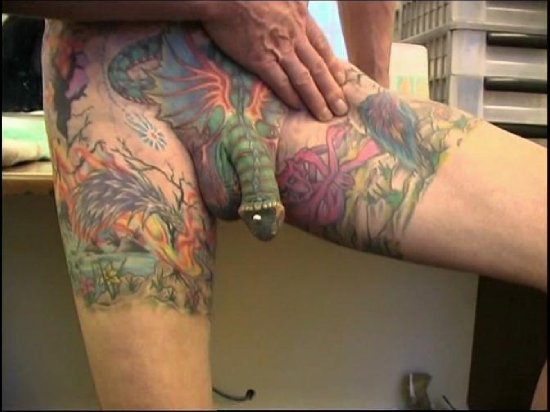
Question: You look at tattoos and body modification as a way to overcome personal loss and to hide bodily scars. You interview a woman who overcame breast cancer. Can you talk more about this?
SJ: The lady involved, Meg Gaffney, is one of the bravest and most inspirational people I've ever met. After having both breasts removed and having faced countless operations she said 'enough was enough' and instead of more painful skin grafts to recreate her nipple area she decided to go the unique route of getting her nipples tattooed on. It's certainly one of the most heart-warming stories in the documentary and clearly shows how tattoos can help people overcome adversity and show again the diverse reasons for getting one.
Sousila: One reason is that Tattoos and Body Modification can be used throughout the healing process, as a way of remembering your loved one by having them attached permanently to you- the mental versus the emotional versus the physical elements. It can be used as a way of replacing that loss, to have something to focus on during that period of immediate loss and grieving. People can sometimes use tats & BM as a way of self-harming, to have the physical outcome as a constant reminder of that particular issue that they were experiencing, and being in that place mentally and emotionally at that time in their lives. In contrast to this, people may find it releasing and uplifting, to want to show the world what is important to them by having it imprinted on them permanently. Also, for attention in a positive, (or negative way - introverted self-harming). Scars can embarrass some people, whether self inflicted or done by someone else and use Tats & BM as a way of covering pain & hurt. It all depends on ones character, personality, & individual reasons. 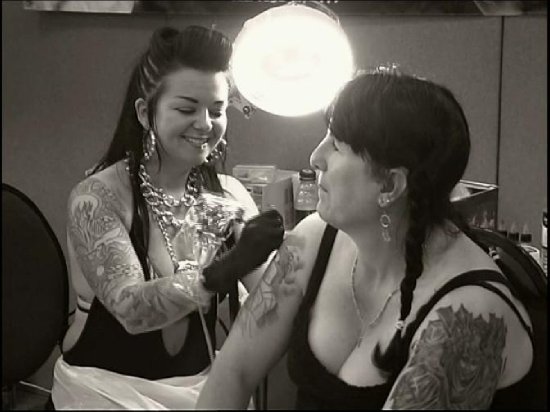
Question: You also bring our attention to a 20-year-old girl who was beaten to death for just for being different. Why do you think people respond to diversity in this way?
SJ: Firstly, on the subject of Sophie Lancaster, we would like to take the opportunity again to thank Sophie's mum, and entire family for supporting the film and allowing us to highlight Sophie's story. It still gives me Goosebumps when I watch back the scene from the documentary and baffles me as to how and why anybody would react like that to somebody looking different. We are all individuals and should have the right to look however we want without being persecuted.
Sousila: Because they do not understand that person's characteristic - to be cool, to fit in with their peers. Because they are jealous and wish that, they had the nerve to look different. Someone with low confidence and low self-esteem may need to feel empowered and so respond that way. For attention, to and be noticed (regardless if they are actually bothered by the persons appearance). I hate to say it, but through boredom - nothing to do, they see someone that stands out who has the guts & confidence to stand out, and so they become an easy target. It's a huge shame that parts of society are so close-minded and un-accepting of anything more than what they know in their own bubbles of life.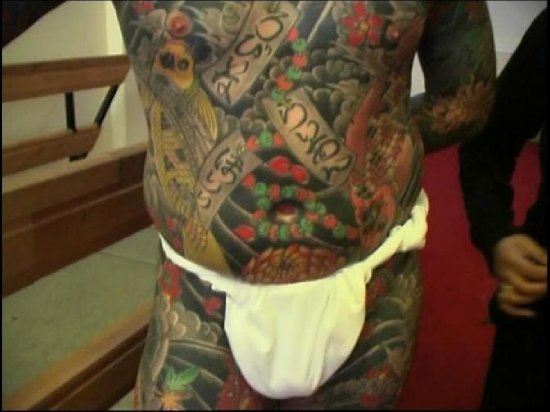
Question: Did you learn a lot about the culture of tattooing by going to the tattoo convention to interview people? I noticed in the documentary you change your clothes in order to 'fit in'. Did your pre-conceived views change afterwards?
Sousila: Yes, I learnt a lot. It was a real insight. I just thought getting a tattoo was getting a tattoo and had never really spent time focusing on the process of it, then I was introduced to modern machinery, to the Japanese kimono tattoos and all the way to traditional tapping. I realised at the conventions that there is a tattooed community, that people gather to show, have and admire each other's artwork. It's also a place where heavily tattooed people can go and show all their tattoos without being judged socially... to be amongst similar like-minded people. Without doubt, I now see tattoos as art and believe that genuine tattooists are artists in their own right. As for changing outfits to fit in, I now know that I wouldn't have had to. They would have accepted me regardless. It made me look at my pre-conceived notions, and myself and it made me aware that all kinds of people with various occupations can all enjoy having body artwork/modifications done. Since then, it has raised the question in my mind - what some people may think about my eyebrow piercing especially due to my ethnicity.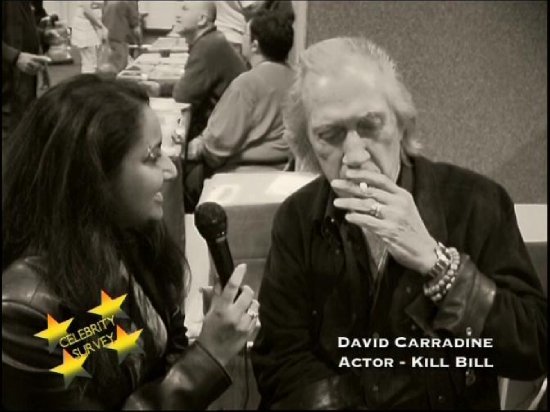
Question: Who were the most interesting celebrities to interview?
SJ: That's actually a tough question as we interviewed over 50 celebrities for the film and they all made a great contribution. Though my favourites were with the Kaiser Chiefs and Julie Benz (Rita Bennett from Dexter), the most interesting for me was with David Carradine. He was such a charming man and drew you into his stories and was VERY passionate about his tattoos...you literally couldn't take your eyes off him. We were so upset when we heard the tragic news of his passing. The other person I found very interesting was Tom Savini (special effects and make-up artist). I think with his elder brother being a tattoo artist he really had a full appreciation of the art form and the reasons for getting one.
Sousila: For me it was Brad Dourif (Doc Cochran from Deadwood) and Gunner Hansen (Leatherface from The Texas Chain Saw Massacre). I could have listened to their views all day - very in-depth, articulate and intellectual. I think Brads take on why people get tattoos and Gunners line "It's a permanent reminder of a temporary emotion" struck a chord. The celebrities who made me laugh were Ken Cranham (Hellraiser II), Stephen Marcus (Matthew Welby from Lark Rise to Candleford), Courtney Gaines (Back to the Future) & the Hellraiser crew! Zandra Rhodes (fashion designer) and Darryn Lyons (paparazzo) put an interesting spin on things from another perspective. I have to say though, that the people that I interviewed who are not celebrities brought such a richness and insight to this project.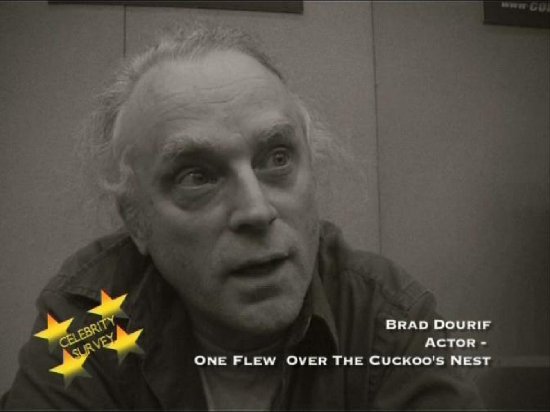
Question: That's why I really enjoyed your documentary; you interview a wide variety of people who have conflicting opinions. You didn't just make it subjective (for 'fans'); you bring an objectivity that is vital to documentary filmmaking. You ask important 'outsider' questions that challenge our perceptions of the tattoo world. I found the experiment you did with Spikey Bob fascinating. What did you learn about people from this experiment?
SJ: Thanks for the kind words. For me, it really opened my eyes to the unmentioned discrimination that goes on in our society. We are all familiar of racism and homophobia but I hadn't realised how much those who choose to take a different path to the perceived 'normal look' are target by narrow minded bullies. To spit at, shout abuse at, attack or not give a job to someone simply because they dress differently or express themselves through body art is ridiculous to me.
Sousila: Unfortunately, we all judge, whether consciously or subconsciously. We would all have pre-judged someone at some point in our lives - the point in the documentary was utilised to highlight this fact, and so hopefully we can all learn that we should at least be more aware of our pre-judgments - that way, we have a choice as to whether we carry out that particular thought or action, or not.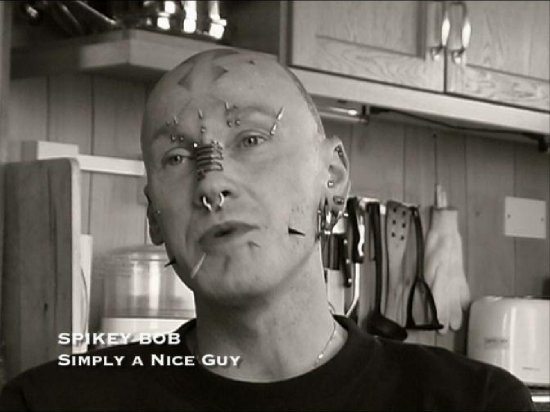
Question: Inspired by your question of choice on the special features: do you like, dislike or don't care about tattoos?
Sousila: Now, I definitely...like! I am contemplating getting a small one to celebrate our journey of Tattoos: A Scarred History.
SJ: When they are done well by a professional tattooist, I love tattoos and am in the middle of planning my next one.
Special Features (60min)
· Trailer
· Music Video
· Tattoo History 101 Animation
· Unseen Celebrity Survey (includes interviews with Tony Todd - Candyman, Claudia Christian - Babylon 5 and Jonathon Breck - Jeepers Creepers and many more)
· Raw & Uncut Interviews with David Carradine, Ana Matronic, Kaiser Chiefs, Mick Foley and Danny Dyer
Deleted Interviews covering the topics:
· Police Discrimination
· Is It Art?
· Removal & Tapping
One last thing, What are your opinions on Tattoos?
Visit www.tattoosascarredhistory.com for more information.
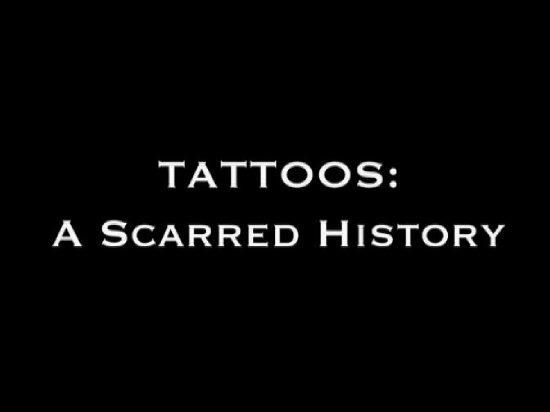
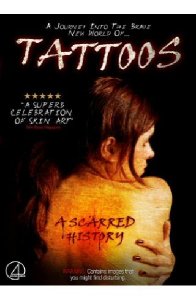
Your Opinions and Comments